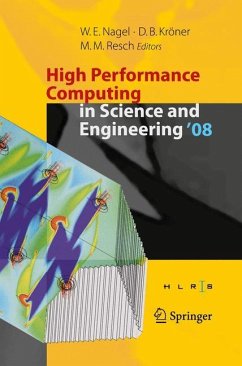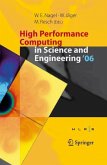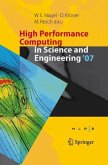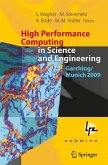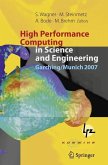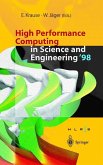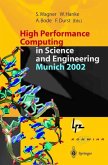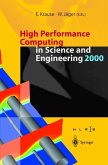This book presents the state of the art in simulation using supercomputers. Leading researchers present results achieved on systems of the Stuttgart High Performance Computing Center (HLRS) for the year 2008. The reports cover all fields of computational science and engineering, ranging from CFD and computational physics and chemistry to computer science, with a special emphasis on industrially relevant applications. Presenting results for both vector-based and microprocessor-based systems, the book makes it possible to compare the performance levels and usability of various architectures. As the HLRS operates the largest NEC SX-8 vector system in the world, this book gives an excellent insight into the potential of such systems. The book further covers the main methods utilized in high performance computing. Its outstanding results in achieving the highest performance for production codes are of particular interest for both scientists and engineers. The book includes a wealth of coloured illustrations and tables.
The discussions and plans on all scienti?c, advisory, and political levels to realize an even larger "European Supercomputer" in Germany, where the hardware costs alone will be hundreds of millions Euro - much more than in the past - are getting closer to realization. As part of the strategy, the three national supercomputing centres HLRS (Stuttgart), NIC/JSC (Julic ¨ h) and LRZ (Munich) have formed the Gauss Centre for Supercomputing (GCS) as a new virtual organization enabled by an agreement between the Federal Ministry of Education and Research (BMBF) and the state ministries for research of Baden-Wurttem ¨ berg, Bayern, and Nordrhein-Westfalen. Already today, the GCS provides the most powerful high-performance computing - frastructure in Europe. Through GCS, HLRS participates in the European project PRACE (Partnership for Advances Computing in Europe) and - tends its reach to all European member countries. These activities aligns well with the activities of HLRS in the European HPC infrastructure project DEISA (Distributed European Infrastructure for Supercomputing Appli- tions) and in the European HPC support project HPC-Europa. Beyond that, HLRS and its partners in the GCS have agreed on a common strategy for the installation of the next generation of leading edge HPC hardware over the next ?ve years. The University of Stuttgart and the University of Karlsruhe have furth- more agreed to bundle their competences and resources.
The discussions and plans on all scienti?c, advisory, and political levels to realize an even larger "European Supercomputer" in Germany, where the hardware costs alone will be hundreds of millions Euro - much more than in the past - are getting closer to realization. As part of the strategy, the three national supercomputing centres HLRS (Stuttgart), NIC/JSC (Julic ¨ h) and LRZ (Munich) have formed the Gauss Centre for Supercomputing (GCS) as a new virtual organization enabled by an agreement between the Federal Ministry of Education and Research (BMBF) and the state ministries for research of Baden-Wurttem ¨ berg, Bayern, and Nordrhein-Westfalen. Already today, the GCS provides the most powerful high-performance computing - frastructure in Europe. Through GCS, HLRS participates in the European project PRACE (Partnership for Advances Computing in Europe) and - tends its reach to all European member countries. These activities aligns well with the activities of HLRS in the European HPC infrastructure project DEISA (Distributed European Infrastructure for Supercomputing Appli- tions) and in the European HPC support project HPC-Europa. Beyond that, HLRS and its partners in the GCS have agreed on a common strategy for the installation of the next generation of leading edge HPC hardware over the next ?ve years. The University of Stuttgart and the University of Karlsruhe have furth- more agreed to bundle their competences and resources.

